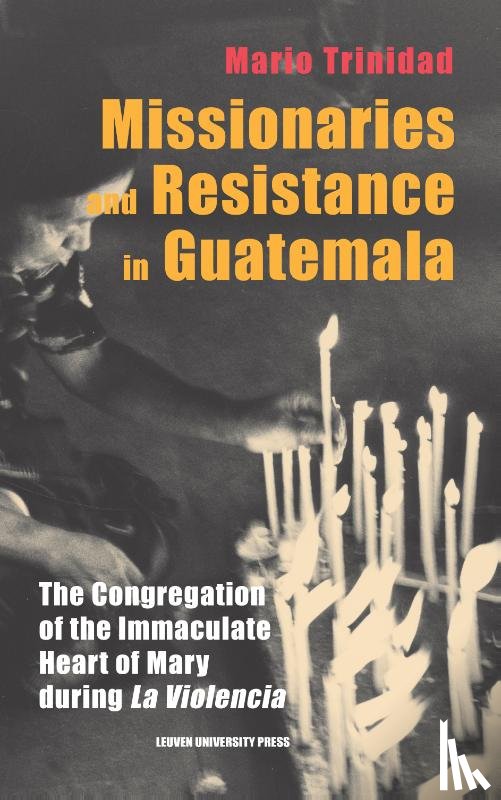Omschrijving
Catholic missionaries in the revolutionary movements of the 1970s and 1980s in Guatemala. In Guatemala, the 36-year armed conflict from 1960 to 1996 claimed 200,000 lives, over two per cent of the population, and displaced a million more. In the 1970s and the 1980s the widespread and violent repression of social movements fighting for justice and human rights reached unimaginable proportions, involving assassinations, disappearances, and exile. Even parts of the Church, traditionally considered an ally of the powerful and the wealthy, were not spared this fate.Missionaries and Resistance in Guatemala chronicles the involvement of certain Catholic missionaries in popular and revolutionary movements. Based primarily on their own accounts, it narrates their gradual progression from conservative theological and pastoral practices to radical positions, informed by their solidarity with the poor and a theology of liberation. Their stories are situated in a wider geopolitical and ecclesial context.Mario Trinidad was a member of the Congregation of the Immaculate Heart of Mary and served in Guatemala in the 1970s. He now resides in Australia and is a retired social worker and university lecturer. In Guatemala, the 36-year armed conflict from 1960 to 1996 claimed 200,000 lives, over two per cent of the population, and displaced a million more. In the 1970s and the 1980s the widespread and violent repression of social movements fighting for justice and human rights reached unimaginable proportions, involving assassinations, disappearances, and exile. Even parts of the Church, traditionally considered an ally of the powerful and the wealthy, were not spared this fate.
Missionaries and Resistance in Guatemala chronicles the involvement of certain Catholic missionaries in popular and revolutionary movements. Based primarily on their own accounts, it narrates their gradual progression from conservative theological and pastoral practices to radical positions, informed by their solidarity with the poor and a theology of liberation. Their stories are situated in a wider geopolitical and ecclesial context. Acknowledgements
Introduction
Tengo una deuda con el pasado
I owe the past a debt
Abrupt end of my first missionary experience
From la tierra de la eterna primavera to la tierra de la eterna tiranía
Methodology and sources
Chapter 1
Pensábamos que estábamos preparados
We thought we were prepared
Guatemala, the first years of a new mission
‘Direct’ and ‘indirect apostolate’
We thought we were prepared for missionary work
The first months in Guatemala
First impressions
Internal division in the face of external division
Universal ecclesial and geopolitical developments
Internal division among Scheutists
Sources of division among Scheutists in Guatemala
Chapter 2
No fue capricho, ni locura, ni gran equivocación
Not a whim, madness, nor a big mistake
First assignments
Traditional ideals, traditional pastoral methods, and traditional allies
Call for reform
Studies at CIDOC and other Latin American Institutes
Three interrelated initiatives
Study, planning and evaluation day
Popular materials
Links with popular organizations
Chapter 3
En el camino la gente nos concientizó
On the journey the people conscientized us
Linking everyday life with big structures through relationships
The missionaries and the guerrillas
Missionaries who joined the guerrillas
Three events before May 1, 1980
Conclusion
Chapter 4
Al fin sufren ahora la misma suerte que la de su pueblo humillado
Finally they suffer the same fate as their crushed people
Mechanisms of terror
Martyrdom: cosmic conflict between good and evil
Conrado de la Cruz (July 27, 1946 – May 1, 1980)
Walter Voordeckers (September 2, 1939 – May 12, 1980)
Congregational response
Just the beginning
The assassination of Scheutists continues
Conclusion
Fue realmente una página de historia
It was truly a page out of history
Epilogue
Abbreviations
Bibliography
Illustration credits
Index of persons


